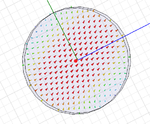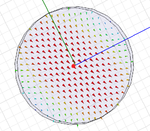redcrystalline
Advanced Member level 4

Hi, my problem is about 1st and 2th modes in circular waveguide, it seems that this two are same mode in addition the cutoff frequencies are not matched with analytical calculation,i've attached project, whats the problem ?


View attachment circular waveguide.rar
Best Regards
Iman Akbari


View attachment circular waveguide.rar
Best Regards
Iman Akbari

